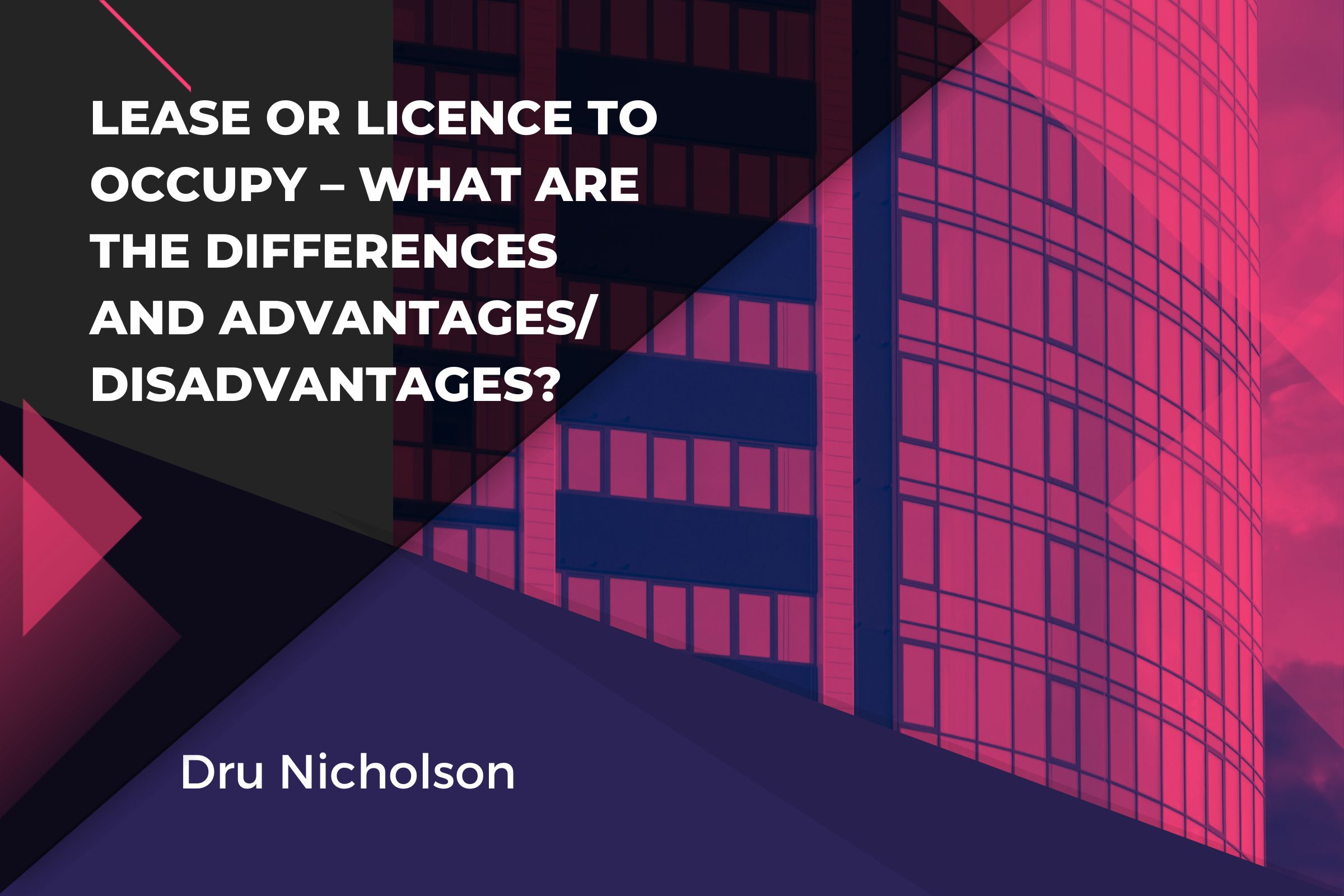
There are two options available to those wishing to take legal occupation of a commercial property:
- a commercial lease; or
- a licence to occupy.
A lease and a licence to occupy are legally-binding agreements between an owner and an occupier that authorise occupation of a commercial property for a period of time. Both require payment to be made in exchange for such occupation, either in the form of rent or a licence fee. There are nonetheless important legal differences between the two and advantages/disadvantages which landlords and occupiers alike ought to be aware of.
Key Differences
The principal determining factor whether an arrangement constitutes a lease or a licence to occupy is whether the occupier has been granted an exclusive right to use the property. With a lease, the occupier (tenant) is granted an exclusive right to occupy for a fixed period of time. On the other hand, a licence to occupy sees a personal permission granted to the licensee to occupy a property for certain agreed purposes which would otherwise be prohibited. Multiple licenses can be granted at the same time in respect of a single property.
Under a lease, the tenant is usually entitled to exercise the rights of the owner and afforded more freedom in terms of their enjoyment of the property compared to a licensee who is usually subject to significant restrictions. As a result, licences to occupy are commonly used for shorter-term arrangements, for example:
- Prior to the grant of a lease when the parties are negotiating the terms of the lease but the tenant requires early access;
- Between a buyer and a seller ahead of completion of a transaction; and
- Department store concession stands.
Advantages/Disadvantages of Licences to Occupy
Advantages
- Can be arranged quickly and cheaply;
- May be beneficial for owners as they can have multiple occupiers and income streams;
- Useful where there is no defined space to be leased e.g. a concession stand; and
- Increased likelihood of no Land and Buildings Transaction Tax being payable (subject to circumstances including when the licence to occupy is granted pursuant to an agreement for lease).
Disadvantages
- The licensee has no security of tenure. A licence to occupy is a personal permission so the licensee’s obligations cannot be assigned to another party. The licence will also not transfer to a new owner should the current owner chose to sell the property
- The purpose for which a licence is granted is usually very specific and leaves little room for manoeuvre should issues arise.
Should you require advice and assistance regarding a new commercial lease or licence to occupy, please do not hesitate to get in touch.
















